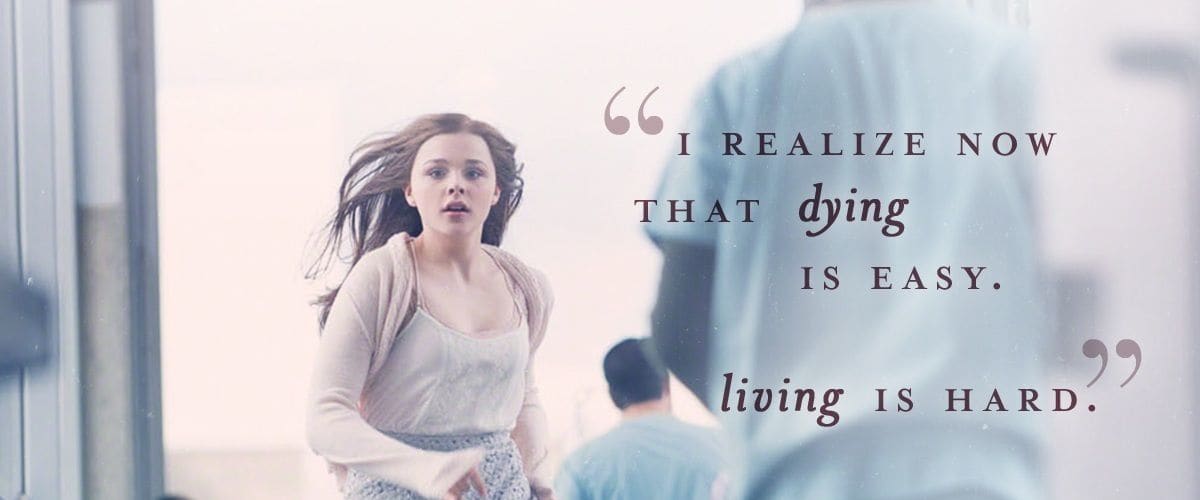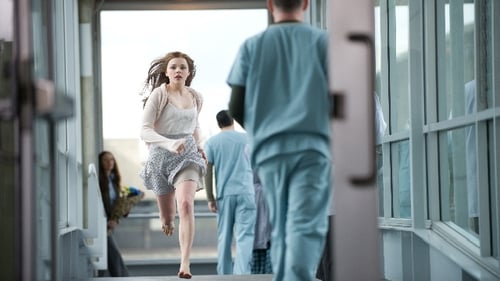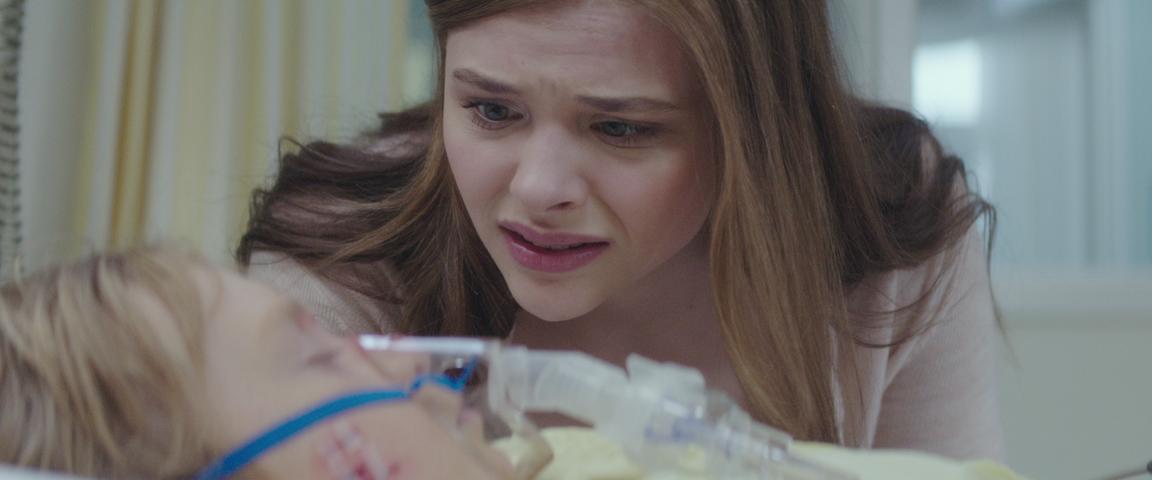- Where Can I Watch If I Stay
- If I Stay Movie Online
- Watch If I Stay Online
- Where Can I Watch If I Stay Movie
Syracuse, N.Y. -- The conversation across New York State has shifted over the past week away from social distancing and to the potential re-opening of the economy. While that shift will be a relief to many it has the potential to put parents in a bind, especially since Gov. Andrew Cuomo announced that schools will be closed through the end of the academic year.
Beautiful, meaningful and very very emotional. Eye opening, especially with life being full of obstacles and big changes, this movie gave me a needed reality check. Love life, love your family, love your friends, and don't take things for granted. This was so well made and all the acting was amazing. Addressed so many important aspects and stages of life, and i would recommend this to anyone. If I Stay follows the life changing 24 hours after Mia and her family get into a devastating car accident. Her parents died at the scene and her little brother Teddy is in critical condition and Mia is floating somewhere inbetween life and death – unable to feel anything but can see everything – including her own body on the operating table. If I Stay is a young adult novel by Gayle Forman published in 2009. The story follows 17-year-old Mia Hall as she deals with the aftermath of a catastrophic car accident involving her family. Mia is the only member of her family to survive, and she finds herself in a coma. Watch If I Stay Full Movie, watch If I Stay movie online, watch If I Stay streaming, watch If I Stay movie full hd, watch If I Stay online, watch If I Stay online. Common Sense Note. Parents need to know that If I Stay is a romantic teen tearjerker based on Gayle Forman's best-selling 2009 novel. It will appeal to the same audience as The Fault in Our Stars - i.e., teens and adults familiar with the book or interested in coming-of-age romances.
Popular Searches
Primary caregivers who are watching children and whose school or child-care facilities are closed are eligible to receive benefits in a variety of ways if they have no other suitable childcare options.
Kristin Small, a lawyer with Empire Justice Center, said the group is fielding calls each day from parents trying to navigate the rules of unemployment and make the best decisions for their families, with one of the common subjects involving unemployment rules and childcare.
The organization is a non-profit that traditionally provides advocacy and legal representation for low-income New Yorkers but has deployed itself during the pandemic to help individuals answer unemployment questions at 1-800-724-0490 (ext. 5827).
While many lawyers have been active in trying to interpret the new rules and regulations for the public, they frequently have noted that many scenarios are new and cautioned that there are many uncertainties to how scenarios will be viewed and rules will be applied.
Here are some things that Small and other experts suggested primary caregivers keep in mind if they are asked to return to work.
1. In Onondaga County, childcare is still free for all workers deemed essential
Parents deemed essential workers by the state (the list is much broader than you would think and is worth looking at if you are working) have the option of utilizing free childcare subsidized by Onondaga County and organized by Child Care Solutions.
The free offer is expected to run through at least May 15, when New York State has announced that it could begin to un-pause and lift restrictions on non-essential work. Workers can call (3150 446-1220.
The offer, put together by Onondaga County, should provide an economical way for any worker deemed essential to perform their job.
Lori Schakow of Child Care Solutions said that the push to encourage everyone to stay in their homes has created an exaggerated fear of childcare facilities. She stressed that licensed childcare facilities have health protocols in place and that the health of the children and the workers are intertwined.
“I understand we’ve said schools are closed and everyone should stay at home and no group mingling and things like that,” Schakow said. “But the reality is the childcare industry, even prior to the COVID-19 pandemic, had very robust health and safety plans in place, good infection control policies and procedures, exclusion of sick children policies. ... They’re doing everything they can to keep children safe because that keeps them safe. It’s a much better option than an elderly relative who you’re putting at-risk or using an unlicensed program or a high school teacher who is convenient but not as safe.”
2. Paid medical leave is available to some
Certain employers are obligated to provide primary caregivers with benefits under the Families First Coronavirus Response Act.
The employers required to provide those benefits include public and private employers with less than 500 employees with some exceptions. Small businesses with fewer than 50 employees can obtain exceptions if the worker’s absence would jeopardize the viability of the business.
Qualified employers would have to provide all employees with two weeks of paid sick time under the Emergency Paid Sick Leave. Employees are required to inform their HR managers that they plan to utilize that time.
Employees on leave are entitled to two-thirds of their normal pay. They would also maintain their benefits and have job protection while on leave.
Employees who have worked more than 30 days would be entitled to another 10 weeks of Expanded Family and Medical Leave.
Unfortunately for workers, Small noted, many companies are not obligated to provide those benefits.
“Really, the FFCRA doesn’t even apply to the majority of workers in the United States,” Small said. “The majority of the workforce works for companies larger than 500 or smaller than 50. It’s still available to a lot of people, but we’ve been talking to a lot of people who aren’t covered.'
3. You can negotiate

One thing that many employment lawyers have noted over the past week is that in many cases both employers and employees are often willing to try and help each other as best they can.
Small said that in cases where a paid medical leave is not available, the two sides might be able to work out an agreement that is partially beneficial for both of them.
An employer might listen to the concerns of an employee and allow a parent to go on unpaid furlough in order to take care of their children until a better option emerges.
“For (those who aren’t covered by the FFCRA), there’s not a lot of relief that I can see in terms if paid relief under the law,” Small said. “We’ve been advising people if they don’t have anyone suitable to take care of their children, they could try to work something out with their employers. They could work out paid-leave to the extent possible under the employer’s policy. If they’re not able to do that maybe arrange a furlough or unpaid leave that would make them eligible for the (Pandemic Unemployment Assistance) program.”
A furlough would allow the employee to maintain their benefits and generate an income through Pandemic Unemployment Assistance, while the employer could save money by not providing a paycheck and retain an employee who is already trained and very appreciative.
4. Pandemic Unemployment Assistance
Primary caregivers that can’t work out an agreement with their employer and have to stay home to take care of their children can take advantage of the Pandemic Unemployment Act if the child’s school or childcare facility is closed.
The calculation for the PUA is different than the medical leave. It is based on a worker’s previous earnings and will provide somewhere between $186 and $504 per week. PUA benefits can only be collected until Dec. 25. The federal government is adding an additional $600 payment through July 31. Individuals collecting benefits through the PUA would not receive healthcare benefits or job protection.
“If someone applies for and is collecting PUA, chances are, they have severed the employment relationship,” said Lindsay Hazelton, an attorney with Hancock Eastbrook. “So, no benefits continuation and no job protection. When applying for unemployment benefits an applicant generally must certify that their former employer no longer has work available for them or they are now are unable to work due to COVID19, as authorized by the PUA.”
While small business owners have expressed concern that workers will opt to remain unemployed rather than return to work, traditional workers are not supposed to be able to choose to stay on PUA long-term.
In general, workers who are offered their old job at the same wage but refuse to work will not continue to receive unemployment benefits unless they meet stated criteria (such as a primary caregiver with no suitable childcare options).
Anyone utilizing the PUA would also have no promises that they can return to their job and would have to wait to wait receive benefits from a new employer, something Hazelton indicated should be a serious consideration.
“If an employee quits or stops working due to COVID-19 related reasons, the employer will likely have to fill that position with someone else,” Hazelton said. “Employees should not assume an employer will then displace that new hire if and when the employee decides they want to return to work. That is the risk I fear some employees are not considering. The benefits and extra $600 per week sound appealing, but the $600 per week expires at the end of July, the benefits generally expire after 39 weeks, and again, that employment relationship is severed, meaning employees will likely have to find health insurance elsewhere.”
5. What if I feel unsafe using group childcare?

With so many new laws and regulations, even legal experts have uncertainties about how to interpret them. They are simply doing the best that they can to interpret the guidance.
When it comes to childcare, one of the key phrases used by multiple lawyers was “suitable childcare options.”
What might feel suitable to one family might not be suitable to another. Some families, like those with at-risk family members in the house, might be more reluctant to look outside the home for childcare options.
Hazelton said it’s still a little bit unclear who gets to decide what constitutes a “suitable” option and whether that is completely the parent’s discretion.
She noted there could even be some small differences in interpretation depending on if a worker was seeking paid leave or PUA benefis.

“Best I can tell, that still is a bit unclear,” Hazelton said. 'I did see that the PUA benefits would be available ‘to an individual whose job allows for telework, but where the provision of care to a child or household member requires such hngoing and constant attention that it is not possible for the individual to perform work at home.’ This would seem to suggest they are giving parents a fair amount of discretion in terms of what is suitable for that benefit. But again that quote was in connection with PUA benefits, not the Emergency FMLA. A person may not be comfortable sending their child to a daycare center in these circumstances, but have they explored all other childcare possibilities? Like using a home-based day care provider? That seems reasonable, but I also have not seen a directive that they are required to do that. As of right now, it’s still a bit unclear as to who has the final say in what’s “suitable.”
Contact Chris Carlson anytime: E-mail 5/8 Twitter 5/8 315-412-1639
———
©2020 Syracuse Media Group, N.Y.
Visit Syracuse Media Group, N.Y. at www.syracuse.com
Distributed by Tribune Content Agency, LLC.
Clinical Contributors to this Story
Manisha Santosh Parulekar, M.D. contributes to topics such as Sleep Disorders, Dementia.
Many schools across the country have shut down in the fight against coronavirus. For many parents who still need to work, a grandmother or grandfather nearby might make a good backup childcare option. But, is that safe?
While we have much to still understand about COVID-19, the CDC says many young children with confirmed cases have generally presented with mild or no symptoms. This could make it difficult to know if your child is spreading the illness.
“Grandparents represent some of the most vulnerable populations to COVID-19 and should carefully consider their individual health before agreeing to look after young children,” says Manisha Parulekar, M.D., the chief of Geriatrics at Hackensack University Medical Center.
Things to Consider
“Anyone over 65 and those with serious health conditions should absolutely avoid watching young children right now, cautions Dr. Parulekar.” Those serious health conditions include:
- Chronic kidney disease
- COPD (chronic obstructive pulmonary disease)
- Obesity (BMI of 30 or higher)
- Immunocompromised state (weakened immune system) from solid organ transplant
- Serious heart conditions, such as heart failure, coronary artery disease, or cardiomyopathies
- Sickle cell disease
- Type 2 diabetes
Grandparents should also avoid young children if there have been widespread cases of COVID-19 in their town or the town where their grandkids live.
“If you are at higher risk for serious illness from COVID-19 because of your age or because you have a serious long-term health problem, it is so important for you to take actions to reduce your risk of getting sick with this difficult disease,” says Dr. Parulekar.
Where Can I Watch If I Stay
How to Stay Safe While Babysitting
If you are an adult and would like to help watch your grandkids, here are a few tips to help stay safe:
- Be sure to only look after immediate family who are showing no symptoms of illness.
- Take basic precautions like washing hands frequently and keeping distance as much as possible.
- Be extra careful and use gloves when changing a diaper or helping a young one go to the bathroom. The CDC says that COVID-19 has been detected in the feces of some patients.
- Clean frequently touched surfaces like tablets, toys, cellphones and play mats.
- Wear a cloth face covering when unable to maintain social distancing while in public.
If I Stay Movie Online
“While there is no vaccine for COVID-19, this is also a good time to check with parents to ensure that any young children you watch have all of their regular vaccines,” suggests Dr. Parulekar. “You don’t want to contract any other illnesses that could put your health at risk right now.”

Next Steps & Resources:

- Meet our clinical contributor: Manisha Santosh Parulekar, MD
- To make an appointment with Dr. Parulekar or a doctor near you, call 800-822-8905 or visit our website.
- Think you have Coronavirus? Here’s what to do next.
- CDC Resources
The material provided through HealthU is intended to be used as general information only and should not replace the advice of your physician. Always consult your physician for individual care.